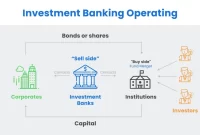Credit Card Management: Strategies for Healthy Credit
Importance of Credit Scores
In the world of credit card management, understanding the importance of credit scores is crucial for maintaining a healthy credit profile. A credit score is a numerical representation of an individual’s creditworthiness, and it plays a significant role in determining their access to credit and loan offers.
Here are some reasons why credit scores are of utmost importance:
1. Loan Approval
When applying for a loan or credit card, lenders assess the applicant’s credit score to determine their repayment reliability. A good credit score increases the chances of loan approval, while a poor score may result in rejection or higher interest rates.
2. Interest Rates
A credit score directly influences the interest rates offered by lenders. Individuals with excellent scores typically receive lower interest rates, saving them money in the long run. On the other hand, individuals with lower scores are considered higher risk, resulting in higher interest rates.
3. Financial Opportunities
A healthy credit score opens up a world of financial opportunities. It allows individuals to qualify for better credit card rewards, favorable mortgage terms, and higher credit limits. Moreover, it serves as a testament to one’s responsible financial behavior.
4. Insurance Premiums
Credit scores can even affect insurance premiums. Insurers often use credit-based insurance scores to determine the likelihood of policyholders filing claims. Those with poor scores may face higher premiums or be denied coverage altogether.
5. Employment Opportunities
In some industries, employers may consider credit scores during the hiring process. They view credit scores as an indicator of an individual’s financial responsibility and trustworthiness. Maintaining a good credit score can increase employability.
Given these points, it becomes clear that credit scores play a crucial role in one’s financial life. It is essential to establish and maintain a healthy credit score by making timely payments, keeping credit utilization low, and monitoring credit reports regularly.
Managing Credit Card Debt Effectively
When it comes to credit card management, effectively handling your debt is crucial for maintaining a healthy credit profile. Here are some strategies to help you manage your credit card debt:
-
Create a Budget:
Start by creating a budget to track your income and expenses. This will give you a clear picture of your financial situation and help you identify areas where you can cut back and allocate more towards debt repayment.
-
Prioritize High-Interest Debt:
If you have multiple credit cards, focus on paying off those with high-interest rates first. By tackling these debts, you can save money on interest in the long run.
-
Pay More than the Minimum:
Always strive to pay more than the minimum payment amount. By making larger payments, you can reduce the principal debt faster and minimize the amount of interest you accrue.
-
Consolidate Debt:
Consider consolidating your credit card debt into a single loan or balance transfer credit card with a lower interest rate. This can simplify your payments and potentially save you money.
-
Use Cash or Debit Cards:
While working towards paying off your credit card debt, opt for using cash or debit cards instead. This will help you avoid adding more debt and allow you to focus solely on repaying what you owe.
-
Seek Professional Help if Needed:
If you find it challenging to manage your credit card debt on your own, don’t hesitate to seek professional assistance. Credit counseling agencies or financial advisors can provide guidance and help you develop a customized plan.
Remember, managing credit card debt effectively requires discipline and commitment. By implementing these strategies and staying consistent, you can take control of your finances and work towards a healthier credit future.
Building and Maintaining a Good Credit History
When it comes to managing your credit cards, one of the most important aspects is building and maintaining a good credit history. A strong credit history not only helps you obtain loans and secure better interest rates but also reflects your financial responsibility. Here are some strategies to help you develop a healthy credit status:
1. Pay your bills on time
Timely bill payments are crucial for a good credit history. Make sure to pay your credit card bills, loans, and other debts on or before their due dates. Late payments can negatively impact your credit score and make it difficult to obtain credit in the future.
2. Keep your credit utilization low
Credit utilization refers to the ratio of your credit card balance to your credit limit. To maintain a good credit history, try to keep your credit utilization below 30%. This shows lenders that you are not utilizing too much of your available credit and are responsible with your spending.
3. Monitor your credit report regularly
Regularly review your credit report to ensure that all the information is accurate. Look out for any errors, fraudulent activities, or unauthorized accounts. If you spot any discrepancies, report them immediately to the credit bureau to have them rectified and protect your credit status.
4. Avoid opening unnecessary credit accounts
While it may be tempting to open multiple credit cards and accounts, doing so can harm your credit history. Only open new accounts when necessary and manage them responsibly. Too many accounts with high balances can indicate financial instability and impact your creditworthiness.
5. Maintain a long credit history
Having a long credit history can positively impact your credit score. Avoid closing old credit card accounts, even if they are no longer in use. A longer credit history demonstrates stability and responsible credit management.
Building and maintaining a good credit history requires discipline and responsible financial management. By following these strategies, you can establish a solid credit foundation that will help you achieve your financial goals and secure better opportunities in the future.
Safeguarding Against Identity Theft and Fraud
In this article on credit card management, we will discuss strategies for maintaining a healthy credit score, while also addressing the important topic of safeguarding against identity theft and fraud.
Identity theft and fraud can have devastating effects on one’s personal and financial life. It is crucial to take proactive measures to protect your sensitive information and minimize the risk of becoming a victim.
1. Monitor Your Accounts Regularly
Keep a close eye on your credit card and bank statements. Regularly review them to catch any suspicious activity, such as unauthorized transactions or unfamiliar charges.
2. Secure Personal Information
Be cautious with your personal details. Avoid sharing sensitive information, such as your social security number or credit card details, unless it’s absolutely necessary and with trusted entities.
3. Use Strong Passwords
Protect your online accounts by using strong, unique passwords. Avoid using easily guessable passwords and change them regularly. Consider using a password manager for added security.
4. Shred Important Documents
Dispose of important documents, such as credit card statements or bank statements, properly. Shred them before discarding, as identity thieves can use the information from your discarded papers.
5. Be Wary of Suspicious Emails and Phone Calls
Be cautious of unsolicited emails or phone calls asking for personal information or financial details. Legitimate organizations will not request sensitive data via email or phone.
6. Regularly Check Your Credit Report
Monitor your credit report for any unauthorized accounts or suspicious activities. You are entitled to a free annual credit report from each of the major credit bureaus.
By adopting these strategies and staying vigilant, you can greatly reduce the risk of identity theft and fraud. Stay informed, practice good credit card management, and protect your financial well-being.
Conclusion
In conclusion, effective credit card management is essential for maintaining a healthy credit profile. By following strategies such as paying bills on time, keeping credit utilization low, monitoring credit reports regularly, and managing debts responsibly, individuals can build and maintain a strong credit history. This will not only help them access better financial opportunities but also protect them from potential financial pitfalls.




